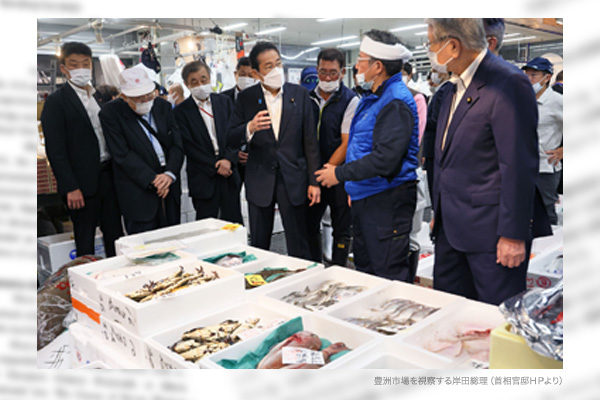Japan lacks diplomatic strategy to counter China’s embargo on Japanese seafood. Prime Minister Fumio Kishida, though giving priority to prompt measures to support fishermen, has been hesitant to act against China. Diplomatic officials reiterate that the government should not provoke China. However, the Japanese government should act immediately on the premise that the seafood embargo is China's economic coercion and will be used as a diplomatic card against Japan. Of particular importance is filing a petition with the World Trade Organization and promoting international collaboration.
No reason to refrain from bringing the case to the WTO
Filing a petition with the WTO against the Chinese action is not inciting confrontation but important for a rule-oriented diplomacy. "We will respond under the framework of the WTO," said Chief Cabinet Secretary Hirokazu Matsuno. However, he only bears in mind that the government would insist the Chinese action as unjustifiable at a WTO meeting, instead of filing a WTO case. Japan should not duck the issue by doing so.
There are two reasons why Japanese diplomatic officials are cautious about filing a WTO case.
First, it takes time to get a WTO ruling. While a WTO ruling is important, however, the objectives for filing a case are not limited to getting a ruling in favor of Japan. The promotion of the rules-oriented diplomacy can deter economic coercion that China may repeat in the future. Australia has filed a WTO case against China's economic coercion, leading China to soften even before a ruling.
Second, there is a risk of losing in the WTO. After the accident at the Fukushima Daiichi Nuclear Power Station, the Japanese government filed a WTO case against South Korea’s embargo on Japanese seafood. Given the bitter experience of “losing” the case in 2019 in the WTO Appellate Body, diplomatic officials are said to be reluctant to file a WTO case. However, the reluctance is a false reaction that does not understand the substance of the Appellate Body ruling.
Following is a majority view among trade law experts:
"The Appellate Body did not necessarily rule the South Korean action as reasonable but only canceled a WTO dispute settlement panel’s decision that the South Korean action was unreasonable for the reason of defective evidence. The ruling refrained from judging whether the South Korean action was reasonable or not.”
This means that the Appellate Body ruling was not Japan’s loss of the case but the avoidance of judgment. The Appellate Body effectively sent the case back to the panel. If diplomatic officials who are reluctant to file a WTO case dare to use the word "loss" to mislead people including politicians, it may be a problem.
Furthermore, China's embargo implemented against the release of treated water from the nuclear power station, which has been scientifically endorsed by an international agency, is definitely different from the previous embargo by South Korea.
There are two stages to file a WTO case: a request for consultations and the establishment of a dispute settlement panel. The request for consultations in the first phase should be made immediately. Since China has refused to have talks with Japan on the embargo, it is important to take a measure to bring China to the table. On August 31, China notified the WTO of the embargo, making clear that it would not accept immediate abolition of the embargo. Japan also should move quickly.
Visualize G7 collaboration
Meanwhile, international collaboration is also important. Japan should take up the issue by launching a Coordination Platform to collectively respond to economic coercion, as agreed at the latest Group of Seven summit. Coordination through telephone communications between diplomatic officials behind the scenes is not enough. International collaboration should be visualized to deter economic coercion.
Instead of focusing on refraining from provoking China, the Japanese government should act immediately with strategy.
Masahiko Hosokawa is a professor at Meisei University and a former director-general of the Trade Control Department at Japan’s Ministry of Economy, Trade and Industry. He is also a Planning Committee member at the Japan Institute for National Fundamentals.


